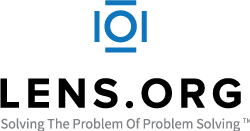Business Ethics Study of Illegal Technology Financial Practices in the Form ff Online Loans
DOI:
https://doi.org/10.58878/jissiwirabuda.v2i2.316Keywords:
Financial Illegal Technology, Online loans, Business EthicsAbstract
This article analyzes the legal challenges of illegal online lending practices from the perspective of business ethics and the government's role in supporting financial technology. Online lending offers convenience in obtaining funds through quick and easy processes. The research employs a constructivist paradigm and a descriptive-analytical method, with the theory of justice in business as a reference. One major issue is the rise of illegal online lending. The Financial Services Authority (OJK) recorded that from January 2018 to April 2019, 947 illegal peer-to-peer lending fintech entities were blocked. The study results highlight two key points: first, the legal challenges of illegal online lending involve issues related to legal entity structure, licensing, legality, and legal protection for parties involved. From a business ethics perspective, legal online lending must maintain trust, which significantly impacts a company's reputation. However, illegal lending can lead to criminal activities such as fraud and money laundering. Second, the government's role in business development includes improving the national legal system and regulations that cover funding, taxation, consumer protection, education, cybersecurity, and the management of online lending practices.
Downloads
Published
How to Cite
Issue
Section
License
Copyright (c) 2024 Ni Ketut Sari Adnyani, Dewa Ayu Eka Agustini

This work is licensed under a Creative Commons Attribution-NonCommercial-ShareAlike 4.0 International License.


 TEMPLATE JURNAL
TEMPLATE JURNAL



